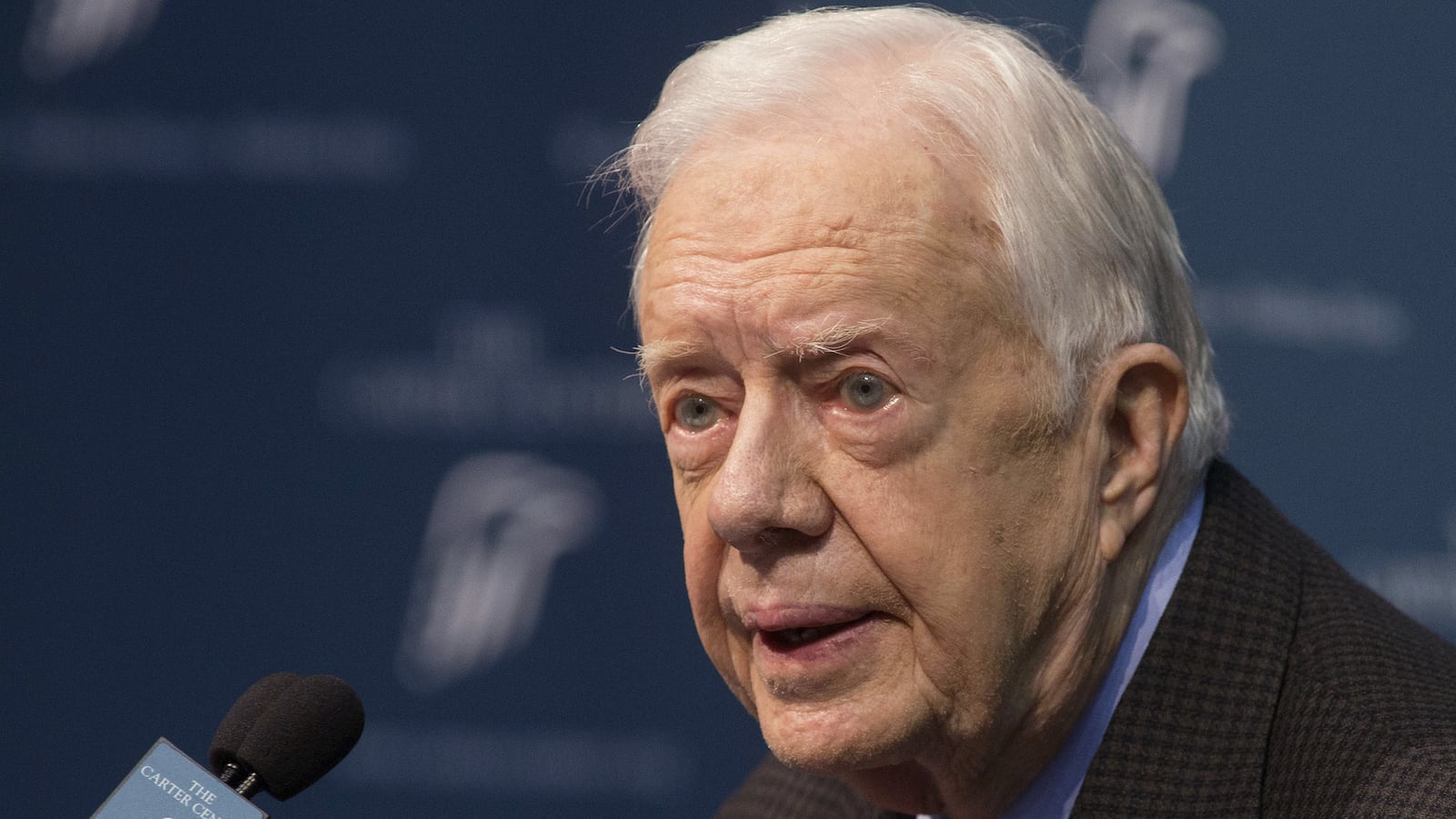Former President Jimmy Carter announced today that doctors had found spots of melanoma cancer on his liver and brain and that he would begin radiation treatment immediately. The news is surprising considering previous speculation that the 90-year-old Carter might have been suffering from pancreatic cancer, which claimed the lives of his father and all three of his siblings. (In early August, Carter disclosed that he’d had surgery on his liver, without elaborating on the details of the cancer.)
In a memoir, Carter had noted the unusualness of his family regarding this latter diagnosis: “The National Institutes of Health began to check all members of our family regularly,” Carter wrote, “and my last remaining sibling, Gloria, sixty-four, was diagnosed with pancreatic cancer and died in 1990. There was no record of another American family having lost four members to this disease.” His mother had several cancers including involvement of the pancreas among other sites, whereas the other four had primary pancreatic cancer.
The confluence of so many people in one family with the same unusual cancer has raised the issue of whether pancreatic cancer, which will be found in 49,000 Americans in 2015 and will kill more than 40,000, might have a strong inheritable element, at least for some families.
Right now, the contribution of inherited genes to overall pancreatic cancer rates does not seem substantial. And Carter’s diagnosis only heightens the mystery of why some family members develop one kind of cancer and not another.
This is an always-hot area: Constituents of the now-senescent Baby Boom are nothing if not children of the Double Helix and the wonderful world of DNA. Watson and Crick published their startling discovery in 1953, when the Boom was really starting to boom. Our fascination and near-religious belief in the gene as a core, immutable, cosmic truth has not waivered in the 60-plus years since. However, with this reverence has come an inattention to what we talk about when we talk about genes—especially the path from a genetic mutation to a tumor.
There are two basic ways that genes can contribute to development of cancer: either through germ-line genetic mutations or somatic genetic mutations. Though the terms seem haughtily exclusive and intentionally confusing, the difference actually is quite simple: “Germline” genetic mutations refer to abnormalities in the genes you get at birth—red hair, blue eyes, big nose, or perhaps a cancer gene, like BRCA, that is strongly associated with breast and ovarian cancers. Every cell in the body contains the bad-news germline gene. Such germline genetic changes are the tragic signature of “cancer families,” those star-crossed groups who get cancers of a certain type, generation after generation.
These types of genetic problems, though, comprise the minority of the genes-and-cancer story. More common are somatic mutations—damage to a gene that was initially perfectly normal and inherited (germline), but that was affected by too much sunshine or cigarette smoke or a persistent viral infection. Here, a once-sterling gene that functioned flawlessly for decades is transformed by one of countless complex processes into a disaster, a gene that promotes growth of a cancer cell. Stated another way, the germline jaw however pointy or crooked is the one you got from Mom and Dad, whereas the somatically mutated one is what you have after an incensed linebacker punches you out.
Of course this either-or view of cancer genetics is simplistic—the two types of trouble often collaborate. For example, some people might inherit a sketchy gene that, left untouched, stays quiet. But, with the right environmental jostling—again such provocations as sunshine or cigarettes—this unstable bit of DNA might trigger the cascade of unfortunate events that lead to a lethal cancer.
In the days ahead, we will learn more about President Carter’s difficult predicament and recall his oddball family, each of whom died of pancreatic cancer: his long-deceased and vaguely characterized peanut farmer father and Miss Lillian, his mother, who was full of vinegar and reveled in the role of the blunt and fearless Southern broad; brother Billy, who drank a lot, talked even more, and liked to travel to Libya; his evangelist sister, Ruth, who gave liberals a chill with her profound Christian fundamentalist faith and view that allowing Jesus into a memory was a certain way to be healed; and his baby sister, Gloria.
No matter what is ahead, President Carter—who has been a stubborn and fair-minded voice of reason in an ever-swirling world—is already facing the situation with the remarkable dignity and calm that has characterized his work in the many decades since he left the Oval Office as he has brought needed attention and resources to underrepresented persons across countries and religious beliefs. And knowing how he has handled other situations, it seems likely that he will confront this challenge in a public way that brings important focus to yet another underserved and mostly ignored group of people: older persons with cancer.






